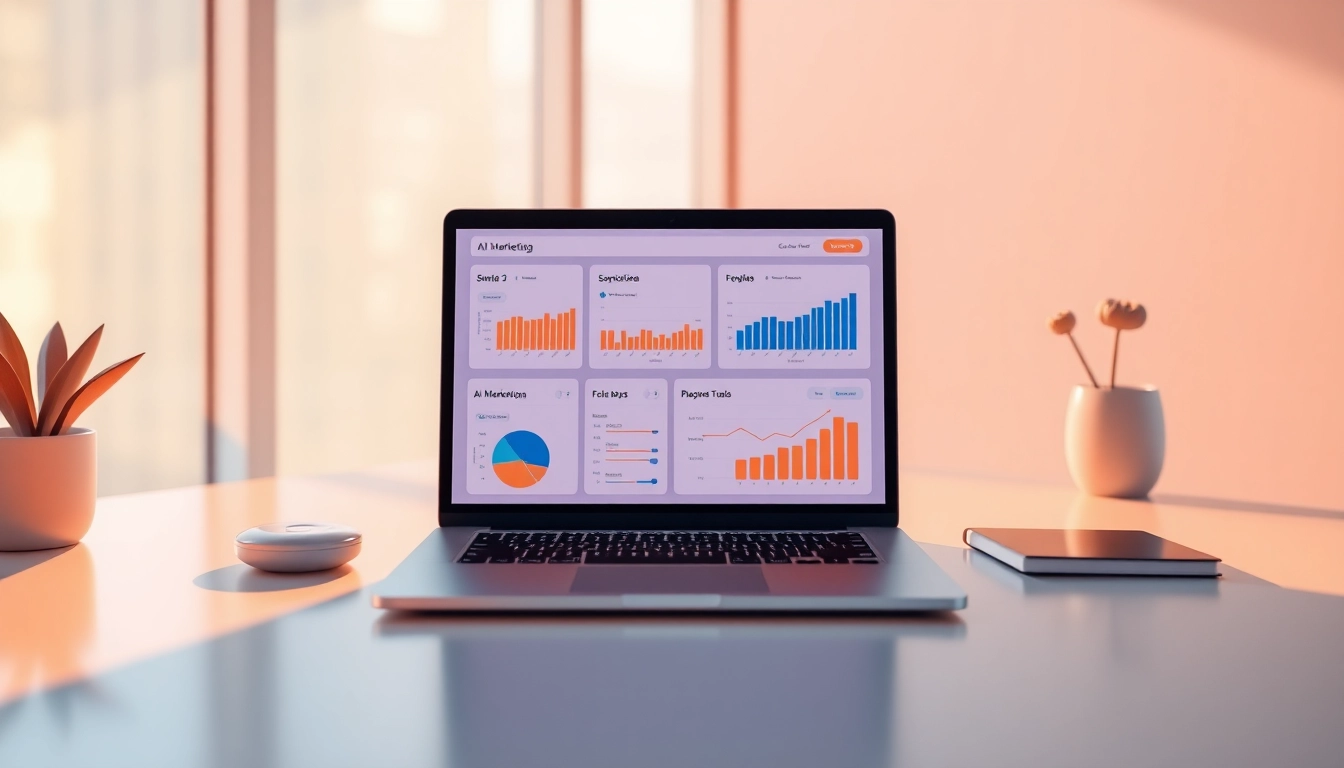Understanding Wholesale Real Estate Cold Calling
What is Wholesale Real Estate Cold Calling?
Wholesale real estate cold calling is a proactive outreach strategy employed by real estate wholesalers to connect with potential property sellers. The goal of this activity is to identify motivated sellers who are willing to sell their properties below market value, allowing wholesalers to secure favorable deals and then assign those contracts to investors or buyers at a profit. Unlike traditional real estate sales, cold calling focuses on initiating contact with property owners who may not even be considering selling their property at that time.
Importance of Cold Calling in Real Estate Wholesaling
Cold calling plays a critical role in real estate wholesaling for several reasons. It allows wholesalers to:
- Tap into a larger pool of leads: Cold calling expands the reach beyond the limited scope of online listings and advertisements.
- Build rapport and establish trust: Direct conversations enable wholesalers to create personal connections with potential sellers.
- Quickly gauge seller motivation: Wholesalers can determine the selling intent of the property owners within minutes, helping to prioritize leads.
Ultimately, successful cold calling can lead to lucrative contracts and a strong pipeline of investment opportunities.
Key Differences Between Cold Calling and Other Lead Generation Methods
Cold calling significantly differs from other lead generation strategies such as digital marketing or networking. Here are the key distinctions:
- Direct Communication: Unlike email or social media outreach, cold calling creates immediate two-way dialogue, allowing for quick feedback and relationship-building.
- Targeted Approach: Cold calling enables wholesalers to focus on specific demographics or neighborhoods, whereas other methods often cast wider nets.
- Real-Time Adaptation: Conversations on calls permit dynamic adjustments to pitch based on the seller’s responses, which is often not possible in written communication.
Best Practices for Wholesale Real Estate Cold Callers
Proven Techniques to Improve Cold Calling Success
The success of cold calling hinges on various techniques that can help wholesalers become more effective:
- Research Your Leads: Before making calls, conduct thorough research on potential sellers. Understand the property, neighborhood trends, and any relevant history that may aid discussions.
- Personalize Your Approach: Tailor conversations to the individual seller’s circumstances. Mention specific aspects of their property or the local market to showcase your interest and knowledge.
- Practice Active Listening: Pay close attention to what sellers say during calls. This builds trust and better informs your responses or offers.
- Use a Positive Tone: Your tone of voice can significantly influence the perception of your call. Maintain an upbeat and enthusiastic demeanor to engage the seller.
- Establish a Clear Objective: Every call should have a specific goal, be it gathering information, setting an appointment, or closing a deal. Having clarity will keep the conversation focused.
How to Develop an Impactful Cold Calling Script
A well-crafted cold calling script can greatly enhance your efficiency and effectiveness during calls. Here’s how to develop one:
- Introduce Yourself and Your Intent: Start with a concise introduction, including your name and company, followed by the purpose of your call.
- Engage with Questions: Use open-ended questions to encourage conversation, such as “What are your thoughts on the current housing market?” or “Have you considered selling your property?”
- Prepare for Objections: Anticipate common objections and prepare responses that address those concerns while steering the conversation back to your goal.
- End with a Call to Action: Always conclude with a clear next step, whether it’s scheduling a follow-up call, an appointment, or asking for a commitment to consider your offer.
Timing Your Calls for Maximum Engagement
Timing is a crucial factor in the success of cold calling. Studies indicate that making calls at optimal times can significantly boost connection rates. Some best practices regarding timing include:
- Weekdays Proximity: Midweek days, particularly Tuesday through Thursday, are commonly found to yield higher success rates compared to Mondays or Fridays.
- Late Afternoon & Early Evening: Many homeowners are more likely to be available after work hours, making late afternoons and early evenings ideal for reaching sellers.
- Avoid Holidays: Be mindful of public holidays and major events when planning your calls, as potential sellers may be occupied or unreachable.
Common Challenges Faced by Wholesale Real Estate Cold Callers
Addressing Rejection and Resistance
Rejection is an inherent part of cold calling, and it is essential for wholesalers to develop resilience against it:
- Understand the Nature of Cold Calling: Recognize that rejection isn’t personal; it’s a standard part of the process. Shifting your mindset can help reduce discouragement.
- Learn from Each Call: Each rejection offers a learning opportunity. Take notes on what didn’t work and adjust your approach for future calls.
- Build a Support Network: Connect with other wholesalers or professionals in the industry to share experiences, motivations, and support during tough times.
Navigating Legal Compliance and Ethical Considerations
Wholesale real estate cold callers must comply with various legal regulations, including the Do Not Call Registry, to avoid fines and legal repercussions. Key compliance tips include:
- Familiarize Yourself with Local Laws: Research and adhere to all local and federal regulations related to telemarketing.
- Respect Privacy: Always ensure that you are calling individuals who have not opted out of receiving contact.
- Document Calls: Keep meticulous records of your calls to demonstrate compliance if questioned.
Overcoming Objections During Cold Calls
Objections are a common aspect of cold calling, and handling them effectively is vital for success. Here are effective strategies:
- Listen First: Allow sellers to express their concerns fully before responding, which can provide insights into their hesitations.
- Develop Prepared Responses: Prepare rebuttals for common objections (e.g., price concerns or satisfaction with their current situation) based on previous experiences.
- Be Patient: Avoid being overly pushy. Sometimes, simply giving sellers time to think and consider your offer can lead to a fruitful conversation later on.
Leveraging Technology as a Wholesale Real Estate Cold Caller
Utilizing CRM Tools for Efficient Lead Management
Customer Relationship Management (CRM) tools can streamline your cold calling efforts. Benefits of using CRM systems include:
- Organized Lead Tracking: Easily manage and categorize leads based on their status, interests, and next steps.
- Enhanced Follow-Up: Set reminders for follow-up calls and maintain consistent communication with potential sellers.
- Analyze Performance: Use analytics features to assess call outcomes, identify successful strategies, and adapt your approach accordingly.
How AI and Automation Can Enhance Cold Calling Efforts
Integrating AI and automation into your cold calling strategy can lead to significant improvements:
- Data Analysis: Automated systems can analyze market trends and identify high-potential leads based on specific criteria, optimizing your calling list.
- Dialing Systems: Automated dialing software can save time by calling numbers sequentially, allowing the caller to focus solely on conversation without manual dial effort.
- Follow-Up Reminders: Automated reminders can help ensure that no lead falls through the cracks by prompting timely follow-up actions.
Tracking Call Metrics to Improve Performance
Tracking key metrics is essential to gauge the success of your cold calling process. Important metrics to monitor include:
- Call Volume: Keep track of how many calls are made daily or weekly to maintain productive outreach levels.
- Connection Rate: Measure the percentage of calls that result in a conversation versus those that go to voicemail or disconnections.
- Conversion Rate: Analyze how many calls lead to successful appointments or deals to assess effectiveness and refine strategies.
Success Stories and Case Studies
Real-Life Examples of Successful Wholesale Cold Callers
Many successful wholesalers attribute their growth to effective cold calling. For instance, a wholesaler in Austin, Texas, began cold calling five years ago, initially reaching out to 50 leads per week. Through diligent efforts and refining his cold calling script, he secured deals that doubled his income within a year. His key takeaway was the importance of persistence and continuous learning from each conversation.
Key Takeaways from Top Performers in the Field
Learning from top performers can provide valuable insights for aspiring wholesale cold callers. Common traits include:
- Relentless Persistence: Many successful callers emphasize the sheer volume of calls and the importance of not being discouraged by rejection.
- Continuous Improvement: They constantly refine their scripts, techniques, and overall strategy based on performance data.
- Networking and Mentoring: Connecting with others in the field and seeking mentorship have been pivotal for many in accessing new strategies and insights.
Lessons Learned from Failed Cold Calling Campaigns
Failure is often a stepping stone to success. Many successful wholesalers have encountered failures in cold calling that offered critical lessons:
- Neglect of Follow-Up: A common mistake is failing to follow up on initial calls. Studies show that persistence significantly increases the chance of conversion.
- Ignoring Data: Some neglected to analyze their call metrics, resulting in repeated mistakes. Tracking data is essential for continuous improvement.
- Insufficient Training: New callers often dive into the process without appropriate training. Investing time in mastering effective communication techniques is crucial.



